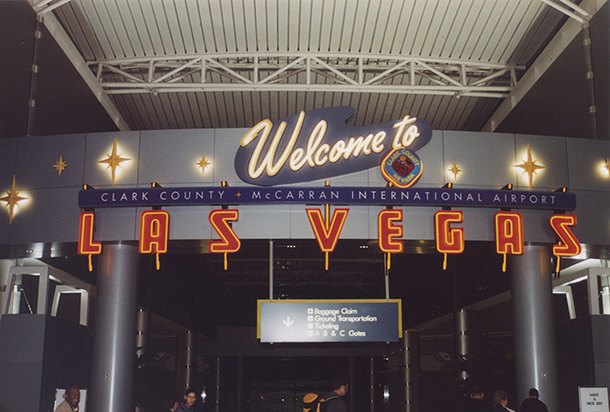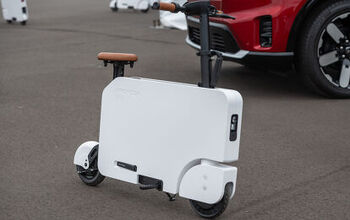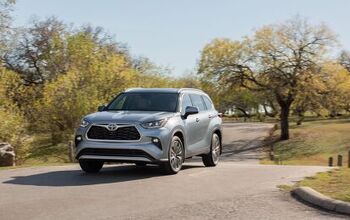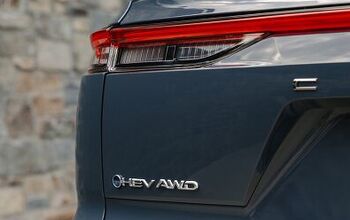Rental Car Companies Reeling From Uptick in Travelers
Rental car companies are their own worst enemies, having sold off much of their fleets during the pandemic’s height. With travel restrictions easing in many places they find themselves with no inventory.
Consolidation is another aspect that hasn’t helped whatsoever. There’s Enterprise Holdings, which is Enterprise, National, and Alamo. Hertz and Advantage are one. Avis and Budget are another group, as is Dollar and Thrifty. In some places, you’ll find Sixt, a German mobility service provider. Other than that, there’s maybe a few regional players. The point here is that in many locations, they’ll rent you the same vehicle under one brand or another. This reduces the total number of cars they need, if demand is up at Budget, but not so at Avis because they’re generally more expensive. The same goes for Hertz, which is usually the highest-priced.
Last October, I went to Phoenix for a business meeting. While there were few passengers on board the plane, it was a different story on the ground in Phoenix. With fewer restrictions in that state, it appeared to be pretty much business as usual. The big change was instead of thousands of rental cars in this mammoth holding area that all the rental companies use, there were hundreds. Empty parking spots in the multi-tiered lot outnumbered those with vehicles waiting. All of them were rented, and anyone waiting at the airport for a vehicle was going to be there a long time.
What happened in Phoenix then has spread to other areas of the country. Friends vacationing in Florida said that they are using Uber because there were no cars to be had in Orlando, and they hadn’t planned ahead. A story today by businessinsider.com only confirmed what I knew already. Prices in some areas are $700 a day, higher than they are for airfare and hotels.
Planning ahead is the only way to avoid these horrendous rental charges. Heading to a tourist hot spot? If you don’t have a reservation, try finding a local agency within a short distance away from the airport. Some local agencies will pick you up and drop you off at the airport, saving you a taxi ride. No, they may not have the same selection of vehicles, but wheels are wheels, right?
[Images: © 2021 J. Sakurai/TTAC]
With a father who owned a dealership, I literally grew up in the business. After college, I worked for GM, Nissan and Mazda, writing articles for automotive enthusiast magazines as a side gig. I discovered you could make a living selling ad space at Four Wheeler magazine, before I moved on to selling TV for the National Hot Rod Association. After that, I started Roadhouse, a marketing, advertising and PR firm dedicated to the automotive, outdoor/apparel, and entertainment industries. Through the years, I continued writing, shooting, and editing. It keep things interesting.
More by Jason R. Sakurai
Latest Car Reviews
Read moreLatest Product Reviews
Read moreRecent Comments
- Ltcmgm78 It depends on whether or not the union is a help or a hindrance to the manufacturer and workers. A union isn't needed if the manufacturer takes care of its workers.
- Honda1 Unions were needed back in the early days, not needed know. There are plenty of rules and regulations and government agencies that keep companies in line. It's just a money grad and nothing more. Fain is a punk!
- 1995 SC If the necessary number of employees vote to unionize then yes, they should be unionized. That's how it works.
- Sobhuza Trooper That Dave Thomas fella sounds like the kind of twit who is oh-so-quick to tell us how easy and fun the bus is for any and all of your personal transportation needs. The time to get to and from the bus stop is never a concern. The time waiting for the bus is never a concern. The time waiting for a connection (if there is one) is never a concern. The weather is never a concern. Whatever you might be carrying or intend to purchase is never a concern. Nope, Boo Cars! Yeah Buses! Buses rule!Needless to say, these twits don't actual take the damn bus.
- MaintenanceCosts Nobody here seems to acknowledge that there are multiple use cases for cars.Some people spend all their time driving all over the country and need every mile and minute of time savings. ICE cars are better for them right now.Some people only drive locally and fly when they travel. For them, there's probably a range number that works, and they don't really need more. For the uses for which we use our EV, that would be around 150 miles. The other thing about a low range requirement is it can make 120V charging viable. If you don't drive more than an average of about 40 miles/day, you can probably get enough electrons through a wall outlet. We spent over two years charging our Bolt only through 120V, while our house was getting rebuilt, and never had an issue.Those are extremes. There are all sorts of use cases in between, which probably represent the majority of drivers. For some users, what's needed is more range. But I think for most users, what's needed is better charging. Retrofit apartment garages like Tim's with 240V outlets at every spot. Install more L3 chargers in supermarket parking lots and alongside gas stations. Make chargers that work like Tesla Superchargers as ubiquitous as gas stations, and EV charging will not be an issue for most users.
































Comments
Join the conversation
My family, located in CA, WA, and two different parts of TX, usually reunites somewhere in the Rockies for the summer. This year, it's in Utah. The CA and WA groups will drive, but we're already having to worry about this for the two Texas contingents (one of which is big enough that it needs a van or large SUV). Current rates are around $2000 for the week; that won't fly, so we'll have to do something else.
"If you don’t have a reservation" Just an FYI a car rental reservation doesn't mean all that much. You can and will get to the counter and they will say, "Sorry, we don't have any cars." "But I have a reservation!" "I don't know what to tell you, sir. We don't have any cars." And unlike airlines or hotels that bump/walk you and offer a financial incentive. Car rental companies don't.